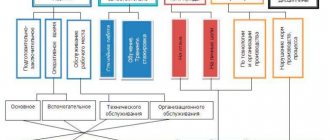Irregular working hours are often used by employers to regulate so-called “overtime”, but at the same time it causes a lot of debate.
Employers, as a rule, are confident that irregular working hours are not limited in time. Of course, this is a very common mistake associated with a lack of understanding of the legal standards for work and rest and, at the same time, an unreasonable desire to save on payments from the organization’s payroll fund. That is, the establishment of irregular working hours is a kind of optimization of personnel costs. Of course, this is a convenient position, which is approved by financial controllers, but does not always comply with labor laws.
Meanwhile, last year an attempt was made to limit the number of hours of “overtime” to 120 hours per year [1], but at the moment the relevant law is still under consideration. Moreover, the State Duma Committee on Federal Structure and Local Government Issues recommended that the lower house of parliament reject this bill.
Let's try to figure out how fair the interpretation of the law on long working hours in favor of the employer is in relation to commercial organizations, in which the temptation to abuse the right on the part of the employer most often arises.
What is an irregular working day?
According to Art. 101 of the Labor Code of the Russian Federation is a special mode of work when, by order of the manager, an employee may periodically be involved in the performance of his duties after completion of working hours.
In this case, the following conditions must be met:
- written or oral order from a manager
- justification for the need for additional labor
- the duties performed must be the same as those specified in the employment contract and performed as usual
- episodic
- the presence of a pre-compiled list of positions that can be assigned to an irregular schedule in accordance with the collective agreement
ATTENTION! Irregular working hours do not apply to the entire team, but only to those individuals whose presence at the workplace at odd hours is necessary for the work process. For example, they must report to the workplace at 4 am or stay there until 11 pm or complete monthly, quarterly and annual reports.
What does the law say about long working hours?
The idea has long been ingrained in the minds of Russians that overtime among so-called office workers is purely an initiative of the employee or employer, not provided for by law, and in no way taken into account or paid. Like, if you didn’t have time to finish something during the day, be so kind as to stay and finish it. A meeting has been scheduled with a counterparty for the evening - he must show up so as not to disgrace the honor of the company and prove his dedication to the business.
However, this idea is only partly true - although such out-of-hour work time is not subject to accounting and payment, all this fits perfectly within the framework of labor standards. Irregular working hours is a concept established by Art. 101 of the Labor Code - represents an opportunity to compensate for overtime with some additional privileges for the employee.
Irregular working hours are a special work regime, according to which individual employees may, by order of the employer, if necessary, be occasionally involved in the performance of their labor functions outside the established working hours.
Art. 101 Labor Code of the Russian Federation
It would seem, at first glance, that everything is simple - working outside the working hours is not prohibited. But the definition given above already contains a number of conditions - they are hidden literally behind every word. So, the characteristics of the work corresponding to Art. 101 TK:
- this is a special labor regime - it is established in a certain (documented) way;
- this regime is determined by individual (not all) employees;
- to carry out such work, an order from management is required (or at least its awareness);
- the extension of the working day should be determined by necessity (urgency of work, threat of penalties, etc.);
- It is possible to involve an employee in unplanned work only sporadically - not every day;
- work outside of working hours may consist solely of performing the duties of a particular employee described in the job description.
On a day off, you cannot be required to work according to the rules of irregular hours - in this situation, another Labor Code norm must be applied. For “extra” time worked on a weekday, an employee cannot receive the right to absence during working hours - here a temporary change in the work schedule is applied, and irregular time is compensated in a different way.
Working on a day off does not fall under the concept of irregular working hours; such cases are formalized according to the rules of other labor standards
What is the difference between overtime work, working on days off and changing working hours?
There are other ways in the Labor Code of legal registration of work outside the limits of the working time established for the employee:
- overtime work (Article 99 of the Labor Code);
- attraction to work on a day off/holiday (Article 113 of the Labor Code);
- changing the working hours during the day.
Overtime work is a concept very close to irregular working hours. The main difference is that such work is compensated with increased (one and a half or two times) pay, while in case of irregular working hours, overtime is not paid at all. However, there are other differences:
- Any employee can be involved in overtime work (with the exception of those for whom irregular working hours are established - after all, for them such work is already regulated in a different way and in preferential categories);
- in most cases, only an employee willing to do extracurricular work can be involved in such work (there are exceptions - see Article 99 of the Labor Code);
- before engaging in overtime work, the opinion of the trade union is sought;
- the law provides an exhaustive list of reasons;
- there are restrictions on the number of employees involved (pregnant women, minors, disabled people, etc. are not allowed), on the duration of work (no more than 4 hours a day and 120 hours a year);
- overtime hours worked are subject to mandatory documentation and recording (in each case of engagement, a report is drawn up, the employee’s consent is sought, and information is entered into the timesheet).
Overtime work is a more profitable option for the employee, since it is subject to accounting and increased pay.
Working on a day off is an exceptional case, says Art. 113 TK. In general, the features and procedure for engaging in this case are very similar to overtime work. The only important difference is the need to issue an order (instruction) from the employer for each case of such work. As for employees with irregular working hours, they can also be involved in working on a day off, subject to compliance with all the norms required by the Labor Code and proper registration (within the established irregular hours, working on weekends and holidays is prohibited).
In case an employee needs, for some personal reason, to “shift” the scope of the work schedule (within one day or even some long or short period), our organization uses the so-called change in working hours. At the request of the employee (with the obligatory permission of the head of the company), an order is issued that “shifts” the scope of the beginning and end of work (postponement, expansion, or narrowing of the lunch break is also possible). If the regime changes for a long period, an additional agreement is concluded to the employment contract. Thus, by working outside the normal schedule, the employee gets the free time he needs. However, this has nothing to do with long working hours - this is just a way to officially “ask for time off.”
Who is entitled to a special - irregular - work regime?
The law does not contain a specific list of categories of workers or positions for which an irregular work schedule could be established. In addition, the Labor Code does not contain any selection criteria or specific characteristics of professions to which the standards in question apply. The question of determining the range of employees, or rather the range of positions, is completely left to the discretion of the employer.
The regime of irregular working hours does not apply to a specific employee, but to a position. Based on the specifics of the functions provided for it.
Most often, a working day not bound by norms is established:
- executives (director, his deputies, chief accountant - in case of unforeseen business meetings outside the work schedule, emergency situations, etc.);
- heads of structural divisions (any area of activity may one day require the presence of employees at work outside the work schedule, and, of course, it is better if this is the most responsible employee - the boss);
- drivers (the road, as you know, is an unpredictable business);
- cargo receivers (freight is often delayed en route);
- translators (their help may be needed at any time);
- employees providing contacts with counterparties (organizations’ operating hours may differ), etc.
As for legislative restrictions regarding irregular working hours, Art. 99 of the Labor Code contains only a clause about the impossibility of establishing it for employees with a part-time working day (but not a week). The Labor Code does not prohibit part-time workers from establishing this type of work schedule.
Since minor workers are required by law to have a reduced working day, it is better not to apply the regime of irregular working hours to them.
The law does not directly define preferential categories of employees with regard to irregular working hours: at first glance, such a regime may well be established for pregnant women, young mothers, the disabled, and minors. Nevertheless, the Labor Code has norms (Article 92 “Reduced working hours”; Article 94 “Duration of daily work (shift)”) that limit the duration of daily work without fail for minors, students, disabled people and workers with harmful and unsafe working conditions. Therefore, the employer should be extremely careful with the listed categories of employees. It is quite possible that if there is a dispute regarding the legality of engaging in work within the framework of irregular working hours, the court may side with them.
If a pregnant employee (mother of a young child or a disabled minor child) at her request is given a part-time working day (in accordance with Article 93 of the Labor Code, the employer does not have the right to refuse), the regime of irregular working hours is not applicable to her. It must be excluded from the employment contract if it has been established.
How is an employee compensated for working irregular hours?
The most pressing issue of the topic under consideration - compensation for overtime within the framework of an irregular working day - was resolved by the legislator in such a way that it is unlikely to completely satisfy employees who in practice overwork. Yes, Art. 119 of the Labor Code obliges the employer to provide employees with irregular working hours with at least three additional vacation days annually (regardless of whether there was actual overtime or not, its duration).
Standard compensation for long hours of work - three days of additional leave
At the same time, the law does not provide for options for direct monetary compensation for time worked, if only because this time is not taken into account in any way (it is impossible to count it). The only legal way to “translate” compensation into money is to replace the required vacation with monetary compensation (Article 126 of the Labor Code). However, this option is only possible:
- by agreement with the employer (it’s not for nothing that the word “may” appears in the text of the article - “at the request of the employee, part of the vacation can be replaced with monetary compensation”);
- for employees who do not belong to preferential categories - pregnant women, minors (the law prohibits them from replacing vacation with compensation).
In order to replace additional leave with compensation, you must first earn it (work for some time in an irregular working day)
No one, however, prohibits the employer from establishing in his own local legal acts a type of compensation that is more beneficial for the employee - monetary compensation (a bonus for long working hours). However, such a bonus will have to be paid monthly, regardless of whether the employee worked overtime or not.
How many extra hours are allowed?
According to Art. 91 of the Labor Code, the normal length of the working week is 40 hours, usually a five-day week with an 8-hour working day.
But in some cases, if necessary, the employer can change the work schedule and involve an employee:
- to overtime work
- irregular day
And if the Labor Code specifies clear restrictions on the duration of overtime work, then there are no such specific instructions for irregular days.
There are only requirements that involvement in NSD:
- should not be a constant, but only an episodic phenomenon
- must be caused by extreme necessity
- does not apply to weekends and holidays
- does not apply to persons working part-time
ATTENTION! Obtaining the consent of a subordinate to perform work duties after completion of working hours is not required.
Registration of attraction to work beyond the norm
The procedure for attracting workers to work beyond the norm during irregular working hours is not regulated. In practice, recruitment is often carried out on the basis of a verbal order from the boss or on the initiative of the employee himself who did not have time to complete the task. It seems that in order to guarantee the rights of employees, it is advisable for them to require a written order from the employer to engage in work beyond the norm, otherwise it will be difficult to prove the existence of such an expression of the employer’s will.
List of positions
The list of positions for which NSD can be applied is listed in the internal labor regulations in accordance with Art. 189 Labor Code of the Russian Federation.
It is compiled arbitrarily at the level of a specific enterprise. There is no single list of such positions in the legislation.
In practice, the list of positions with irregular hours most often includes:
- management team (manager, chief accountant, etc.)
- maintenance specialists
- housekeeping staff
- employees whose working hours cannot be taken into account, for example, it is easier for a real estate insurer to catch clients after the end of normal working hours
- representatives of creative professions whose period of work is not specified, etc.
How is the NSD regime formalized in an employment contract?
Following Art. 57, 101 of the Labor Code of the Russian Federation, when employing an applicant, the possibility of involving him in his duties at odd hours is stipulated and documented, for this:
- In the employment contract, in the section “Workplace, working hours and rest time,” a special entry is made stating that an irregular working day is established for the employee. Recruitment to work under the NSD regime is carried out in the manner prescribed by a specific section of the internal labor regulations.
- The “Guarantees and Compensations” section indicates how compensation for irregular working hours occurs, for example, by providing annual additional paid leave of 5 calendar days.
- In the order for hiring a new employee, in the line “conditions of employment, nature of work” the entry is made: “The main work is on irregular working hours.”
If the requirement for NSD was not specified initially, and this becomes necessary later, you will have to draw up an additional agreement to the contract indicating all changing conditions, incl. NDR regime.
Who gets an irregular day?
The legislation does not limit the employer in the choice of positions for which irregular working hours can be established. However, the determination of such a list must be approached taking into account the nature of the work and not include in it all positions available at the enterprise. This may raise questions from inspectors.
The list of positions can be drawn up in the form of a separate local regulatory act or included in a collective agreement or internal labor regulations. It must also be agreed upon with the employees’ representative body (if there is one).
Sample order for approval of the list of positions
Amounts of compensation, additional payment, additional leave
For overtime hours, additional paid leave of at least 3 working days is provided. The right to receive it is given on the basis of an entry in the employment contract. Vacation can be added to the main one; this is noted in the employee’s personal card and personal account.
ATTENTION! Different positions may have different vacation durations.
If the employee wishes and the administration agrees, vacation can be replaced with monetary compensation.
IMPORTANT! You cannot count on additional leave or monetary compensation if there is no entry about NSD in the employment contract. In this case, processing will be considered voluntary and will not be recognized by the NDR regime.
Work accounting
The working hours of an employee with irregular hours are recorded without taking into account the time worked in excess of the norm. This is due to the fact that he is not given monetary compensation, as in the case of overtime work, but is provided with additional annual leave. But since Article 91 of the Labor Code of the Russian Federation determines that the employer is obliged to keep records of working hours actually worked by each employee, the employer can keep such records in a separate independently developed document, for example, a log book or a separate time sheet. This may come in handy if an emergency occurs while performing work outside of normal working hours.
Involving employees with irregular schedules in overtime work
Since the law does not have clear instructions regarding how often employees can be involved in performing work duties beyond the schedule established by the enterprise, some unscrupulous employers force workers to work overtime almost every day. Indeed, neither the Labor Code nor other regulations contain clear criteria for the frequency and duration of excess work.
The word “occasionally”, which appears in Art. 101 of the Labor Code of the Russian Federation does not resolve this issue. However, it makes it clear that such work should not become a common practice, when an employee is regularly delayed for a long time or comes to work much earlier.
Article 101 of the Labor Code of the Russian Federation
“Irregular working hours” (more details)
Another mandatory condition: the employee performs only his immediate duties as provided for in the employment contract. So, even despite an irregular schedule, it is prohibited to leave an accountant after work to act as a secretary during a business meeting.
Since, according to established practice, overtime work for employees with irregular hours is not paid, some employers do not mark it. However, Part 4 of Art. 91 of the Labor Code of the Russian Federation states that all time actually worked by an employee must be taken into account. Therefore, it is recommended to keep separate records for such processing. This can be done on a time sheet with the appropriate note or in a separate journal. If checked, this will prove that the employee was actually involved in work sporadically.
Article 91 of the Labor Code of the Russian Federation - The concept of working time. Normal working hours
Working time is the time during which an employee, in accordance with internal labor regulations and the terms of the employment contract, must perform labor duties, as well as other periods of time that, in accordance with this Code, other federal laws and other regulatory legal acts of the Russian Federation, relate to working hours.
Normal working hours cannot exceed 40 hours per week. The procedure for calculating the norm of working time for certain calendar periods (month, quarter, year), depending on the established duration of working time per week, is determined by the federal executive body exercising the functions of developing state policy and legal regulation in the field of labor.
The employer is required to keep records of the time actually worked by each employee.
The employer can also clearly see how often the employee actually stays and how much extra time is required to complete tasks. This information can be used to analyze performance or resolve personnel issues. For example, if a maintenance technician often has to leave early to check equipment, it may make more sense to change the work schedule instead of working irregular hours.
New position of Rostrud
Rostrud has issued clarifications for those employers whose employees work on irregular working hours. As before, to introduce such a regime in a company, it is necessary to identify positions where it is necessary and provide guarantees to these employees. The agency explains what procedure for delaying an employee at work is considered legal and what documents the personnel officer must have for this. Fine for an incorrect procedure or incorrectly executed documents from 30,000 to 50,000 rubles, part 1 of Art. 5.27 Code of Administrative Offences.
How is a non-standard operating mode established?
Establishing NSD for certain categories of employees includes several mandatory steps:
- A list of positions at the enterprise for which NSD is expected is developed and approved. There is no specific list in the legislation, so employers need to do this themselves, based on the specifics of the activity and the functionality of the positions. According to statistics, the following positions and professions top the list:
- senior management representatives;
- employees whose work schedule is related to the work of management: assistants, secretaries, clerks, personal drivers, translators;
- heads of accounting and financial services;
- heads of departments with atypical work schedules (for example, warehouse or equipment adjusters department);
- technicians and adjusters;
- technologists (especially in continuous cycle industries);
- logisticians and dispatchers;
- workers responsible for safety and security.
- A draft internal regulatory act is being drawn up to establish the NSD for the categories of workers included in the list.
- If the enterprise has a representative body of workers, the draft local act must be submitted to it for approval. The procedure is provided for in Art. 8 and 372 of the Labor Code of the Russian Federation.
For more information on approvals with the body representing the interests of employees, see “Art. 372 of the Labor Code of the Russian Federation: questions and answers.”
- The draft normative act agreed upon with the stakeholders is approved and becomes the internal regulations of the organization. All employees must be familiar with it against signature.
- For already working employees, when establishing NSD, additional agreements are made to their employment contracts. For newly hired employees, the established NSD is immediately included in the contract, job description and admission order. The new regulations are also reflected in the collective agreement of the enterprise with its employees.
Who cannot work irregular hours
There are categories of citizens who cannot work on an irregular schedule. The employer must know who cannot be appointed to such work, otherwise he will violate the law. Let's consider who does not have the right to work like that.
- People who work as part-time workers. This is not their main job, but an additional one. They also cannot work longer than the time allowed by law.
- Disabled people of groups 1 and 2. They need to confirm their health status with a medical report.
- People who work on piecework basis.
- Pregnant women - regardless of the period, they should not be overworked.
- Those people who work shifts.
- Employees currently training.
- Minors. Their working hours should not be longer than usual.
- Workers who are employed part-time.
The listed people cannot be involved in irregular work schedules. Even if they have signed an agreement, after, for example, pregnancy, they can no longer be overworked.
How and by how many hours can a standard working day be extended?
In this aspect, almost everything remains at the discretion of the employer. There are no special regulatory standards established by labor legislation, therefore:
- You can be involved in additional work for NSD both before and after the official working day.
- An instruction to stay late (or arrive early) can be issued in any form, including verbally, and the employee’s separate consent is not required.
- The time spent on overtime during NSD is not limited in any way; the employee works as many hours as required to complete the assigned task. The only condition: processing should not be done every day for a long time.
Controversial issues
The Labor Code of the Russian Federation does not define the concept of “occasional involvement in work.” How often can a person be involved in work outside of the schedule? There is an answer to this in Art. 99 Labor Code of the Russian Federation.
The maximum duration of overtime work for a worker should be no more than 4 hours for 2 consecutive days and 120 hours per year. Be guided by these restrictions for work during irregular working hours.
Keep separate records of employee overtime. This can confirm the episodic nature of his work outside the work shift. Since there is no such code to be reflected in the time sheet, you can come up with it yourself.
Part-time and part-time work
According to Article 101 of the Labor Code of the Russian Federation, an employee working part-time can be assigned an irregular day if he is assigned a part-time working week, but with a full working day (shift).
If the employee is assigned a part-time working day, then it is impossible to establish an irregular working day for him. In this case, one of the labor modes completely loses its meaning.
Also, the law does not prohibit the establishment of irregular hours for part-time workers. But there are some peculiarities here:
- If a part-time worker is given a working day of no more than 4 hours, then such a working day is considered incomplete. Therefore, it is impossible to establish an irregular working day;
- If a part-time worker at his main place of work is free from work duties on some days, then he can work a full shift with a part-time workweek. In this case, he will be able to establish an irregular working day (according to Article 101 of the Labor Code of the Russian Federation) and, accordingly, compensation in the form of annual paid leave of at least three calendar days.
2.1. We create a vacation schedule
The order of provision of all paid holidays, according to Art. 123 of the Labor Code of the Russian Federation, is determined annually in accordance with the vacation schedule approved by the employer, taking into account the opinion of the elected body of the primary trade union organization, no later than two weeks before the start of the calendar year in the manner established by Art. 372 Labor Code of the Russian Federation. Thus, additional leave for irregular working hours must, like the main leave, be planned by the employee and included by the employer in the vacation schedule. From the moment of approval, the vacation schedule becomes mandatory for both the employer and the employee.
The vacation schedule can be drawn up according to the unified form T-7, approved by Decree of the State Statistics Committee of the Russian Federation dated January 5, 2004 No. 1 “On approval of unified forms of primary accounting documentation for labor accounting and its payment.”
Failure to include additional vacation days in the schedule is recognized by the state labor inspectorate as a violation for which the employer may be held administratively liable under Art. 5.27 Code of Administrative Offenses of the Russian Federation.
Mode specifics
The concept of “irregular working day” (IWD) is defined in Art. 101 Labor Code of the Russian Federation. This is a special regime established for a certain category of positions in a company when an employee works outside of working hours.
This mode contains noticeable advantages for the company: there is no need to document every employee delay and pay for overtime. At the same time, you need to know the procedure for registering such workers and what they are entitled to.
Often, bosses, seeing the benefit, abuse the employee’s personal time. And subordinates who stay for 2-3 hours after work demand extra pay or time off for this, or come to work whenever they please. Both sides are wrong.
It is impossible to use a person’s excess time unlimitedly, because in Art. 101 of the Labor Code of the Russian Federation clearly states that processing should be episodic in nature, that is, sometimes, not systematically.
How many hours does it last and who sets the duration?
Despite the fact that by law you cannot work more than 40 hours a week, NSD is capable of violating this order.
It is the employer who has been delegated the authority to personally approve all the key points related to attracting employees to additional work, including determining the duration .
Despite the fact that there are no restrictions on the duration of work, you still need to adhere to the following rules:
NSD is prescribed either before the start or after the end of the main routine (Rostrud Letter No. 1316-6-1).
The duration of work is limited by the time required to complete a single task.
Even verbally, it is allowed to ask a specialist to stay after work or come early to solve problematic work issues.
Long-term daily processing is unacceptable.
8(800)350-23-68
Dmitry Konstantinovich
Expert of the site "Legal Consultant"
Ask a Question
If an employer abuses the right to appoint NSD employees, such violations should be stopped. There are two ways - send a complaint to the State Tax Inspectorate or the judicial authorities. The legal grounds for this are enshrined in Articles 352, 356 and 391 of the Labor Code. Overtime is recognized as overtime work and the employee will be paid compensation. As for the employer, he will answer under Article 5.27 of the Administrative Code.
Attracting to work on holidays and weekends, to work at night
Let us repeat that many employers interpret Art. 101 of the Labor Code of the Russian Federation in their favor, considering that those who work irregular working hours must work “without days off or holidays.” But this position is wrong. Workers in this regime are subject to all the norms of the Labor Code and can be recruited to work on a non-working holiday or day off only in compliance with the rules established by the code.
For example, to attract employees with irregular working hours to work on days off, you will have to strictly follow Art. 113 of the Labor Code of the Russian Federation and formalize:
- written agreement;
- taking into account the opinion of the elected body of the primary trade union organization;
- notification of the right to refuse work on a day off (for disabled people, women with children under three years of age) and familiarize employees with it against signature;
- order to hire someone to work on a day off.
In addition, before issuing an order, you will have to make sure that employees have no medical contraindications for such work.
Finally, work on a day off must be paid according to the rules of Art. 153 Labor Code of the Russian Federation.
For your information
Work on a weekend or a non-working holiday is paid at least double the amount:
- for piece workers - at no less than double piece rates;
- employees whose work is paid at daily and hourly tariff rates - in the amount of at least double the daily or hourly tariff rate;
- for employees receiving a salary (official salary) - in the amount of at least a single daily or hourly rate (part of the salary (official salary) for a day or hour of work) in excess of the salary (official salary), if the work was performed within the monthly working time norm, and in the amount of no less than double the daily or hourly rate (part of the salary (official salary) for a day or hour of work) in excess of the salary (official salary), if the work was performed in excess of the monthly working hours.
Like working on weekends, working at night is a deviation from the norm for an employee with irregular working hours. Let us remind you that according to Art. 96 of the Labor Code of the Russian Federation, the time from 22.00 to 6.00 is considered night time. Accordingly, employment at this time must be properly formalized and paid at an increased rate - at least 20% is added to the salary or tariff rate (Article 154 of the Labor Code of the Russian Federation).
2.2. We provide vacation: we calculate, arrange and pay
The employee is notified of the start time of the additional leave (no later than two weeks before its start), the same as when providing the main paid leave. Since the law does not establish a mandatory requirement for the number of undivided days of additional leave when dividing it into parts, as in relation to the main annual leave (Article 125 of the Labor Code of the Russian Federation), the employee has the right to divide additional leave for an irregular working day according to the schedule as he pleases - at least one day per month (depending on its duration).
Let's sum it up
- An irregular working day (IWD) is a special regime that is imposed on certain categories of employees and, if necessary, increases the length of work time.
- The provision for a regime different from that established at the enterprise is enshrined in the employment contract and internal regulations.
- An employee cannot set his/her own time of arrival and departure from work.
- If an employee knows that he must perform tasks outside of working hours, there is no need to obtain his consent to do so.
- For work under the NSD regime, 3 days are added to the vacation.
- The processing time is limited.
If you find an error, please select a piece of text and press Ctrl+Enter.
Benefits for irregularity
A person with such a work schedule is subject to the enterprise regime. That is, he cannot come and go whenever he wants. The start and end times of the working day for such an employee are the same as for everyone else. But sometimes, by order of the employer, he can be involved in additional work both before the official start of the working day and after its end. Please note that this rule does not apply to hiring an employee on a day off. Such work is equivalent to extracurricular work and must be paid at an increased rate. We wrote about this in detail in the article on calculating overtime.
Work beyond the norm is not paid additionally, but is compensated by providing additional days of vacation (at the request of the employee). The minimum number of days is three (Article 119 of the Labor Code of the Russian Federation). An enterprise can establish a larger number of days of additional leave, enshrining this in local regulations.
At the request of the employee, additional leave can be replaced by monetary compensation (Article 126 of the Labor Code of the Russian Federation). To do this, you need to make a written application.
How to apply for overtime
The situation is different with the documentation of involvement in overtime activities.
As a rule, the need for overtime activities arises suddenly, and there is not much time left to prepare documents. Therefore, if the employee does not belong to a special category, and the need to leave is related to emergency situations, then it will be enough to issue an order to attract additional work and familiarize the employee with it. In this case, his refusal to withdraw may be accompanied by an administrative penalty.
If the need to leave outside the schedule is not of an emergency nature, then consent to leave must be obtained from the employee. This can be done both on the order itself and on the notice of involvement in overtime work, which can be issued in advance (see Notice of involvement in overtime work and order).
In the timesheet, overtime is indicated by the letter “C” and the number 04. Payment for it is made as follows: for the first two hours - at one and a half times, for subsequent hours - at double. This is the minimum compensation established by the Labor Code.









